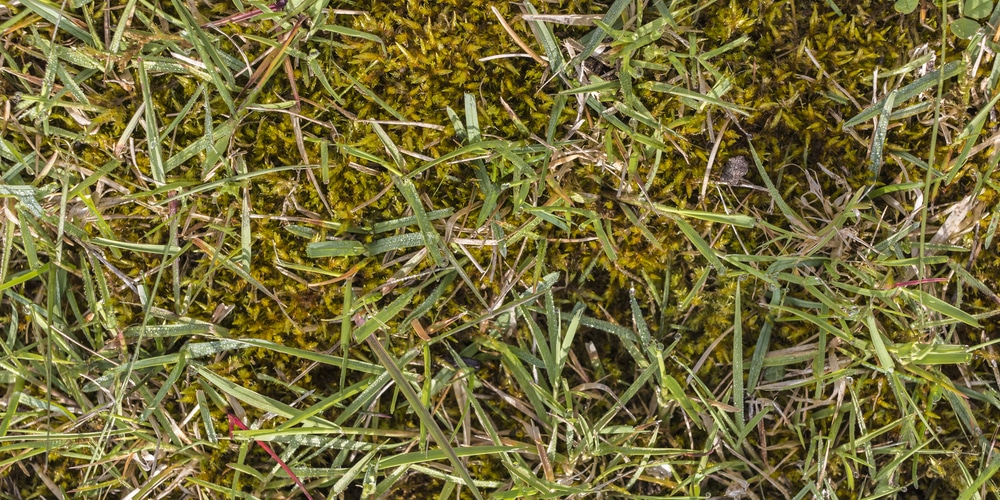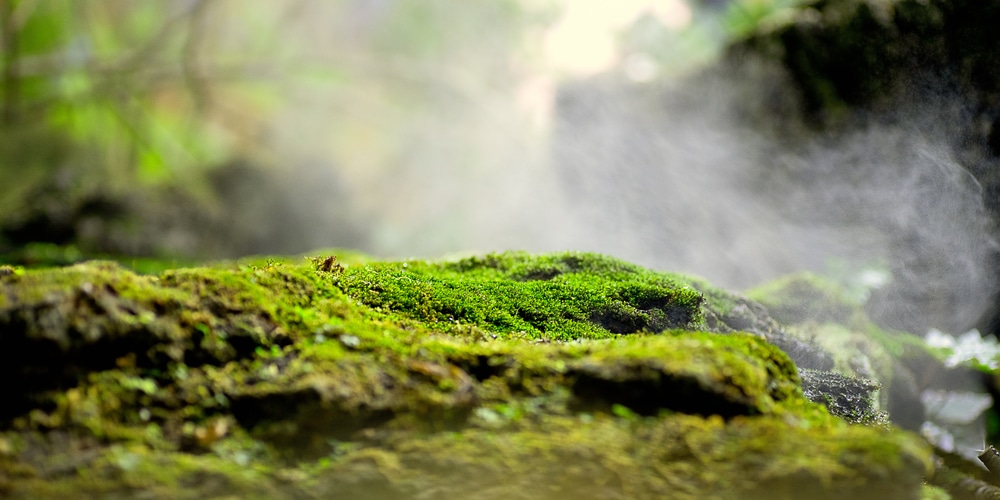The presence of moss is an indicator that the condition of your lawn soil is not the best for grass to grow. Similarly, moss on hard surfaces is a sign of a humidity issue. In fact, moisture promotes moss spore production and dispersal, causing even more moss growth. And, potentially, health hazards when it grows on roofs. What is the best organic moss killer?
The Best Organic Moss Killer
On the market, you can find several natural moss killer products. Generally, they contain either pelargonic acid or bacilli. Both agents provide suppressive action on moss growth. But they differ in the application. Usually, you spray the former and dilute the latter, which can also contain an NPK formula to feed your grass.
Pelargonic Acid
Pelargonic acid is an organic moss killer that acts as a herbicide. In brief, you spray the moss, weed, or undesired plant and see it wilt and brown within hours. This soap is biodegradable and leaves no residue in the soil, making it the perfect natural contact moss control for hard surfaces and specific spots.
Of course, it is not the best option for people who want to find an alternative product to buying and using a scarifier for their lawns. But it is the ideal solution for quick and easy moss control because pelargonic acid acts on the foliage, causing it to dehydrate and collapse quickly.
You can use pelargonic acid on your roof, paths, driveways, and gardens. The only precaution you have to take is to spray it in calm, dry conditions with no imminent rain. As you might have guessed, you also want to avoid nebulizing your good plants.
D-Limonene
Like clove oil and eugenol, this botanically-based oil usually appears in many organic herbicides. In detail, d-limonene is citrus oil and is an environmentally friendly moss killer. This oil usually kills moss within an hour or two by taking the chlorophyll out of the moss cells.
Moss is a bryophyte, which essentially means it is a plant without roots. So, you cannot feed it something. Instead, you have to cause cell damage and leakage. D-limonene does just that.
Organic growers can turn to d-limonene products as well. Especially if they do not want to use an aggressive week killer. In fact, d-limonene appears in the OMRI lists as an organic moss killer. OMRI is an organization that approves organic materials for organic operations.
Bacilli
Fungi and bacteria are two types of beneficial microbes in healthy soil. In short, they work together in clusters to promote plant growth. Bacilli are bacteria, microscopic beings that decompose minerals so your plants’ roots can easily absorb them.
Different bacteria colonize various areas within the root structure, expanding overall root mass and nutrient absorption capacity. And each habitat enhances some bacilli while discouraging others. So, you can use these bacteria as an organic moss killer too.
The idea behind organic products that contain one or more moss-killing bacillus is to change the condition of your soil to prevent and kill moss while optimizing soil to grow grass. For this reason, the products also alter soil pH because moss’ acidity creates a sterile environment that inhibits the growth of bacteria.
Baking Soda, An Alternative Short-Term Solution
Baking soda can be an effective organic moss killer in some instances. For clarity, not every moss species prefers a slightly acidic environment. But for those that do, it works well.
This method works best on small patches of moss. Above all, it is natural and will not harm the environment as long as you do not overuse it. Also, wear a pair of gloves to prevent skin irritation.
One tablespoon of baking soda in one gallon of water is enough for a powerful solution. Instead, directly applying baking soda to the moss is not recommendable as it can lead to toxic levels for grass and plants in general. After all, baking soda contains sodium.
In general, baking soda does more bad than good. So, it is recommendable that you only try it on a short-term basis if you are curious.
What Is The Best Organic Moss Killer For You?
Every organic moss killer usually works fine as long as you follow some simple precautions to prevent moss growth:
- Aerate your lawn by poking holes with a pitchfork to prevent soil compaction. Especially in high-traffic areas.
- Decrease the quantity of watering and see if that stops moss from spreading.
- Improve your lawn’s drainage with a rake or scarifier to prevent waterlogging from rain.
Now that you know about how to get rid of moss organically, you may be interested in how to get it out of trees. Thanks for reading!

